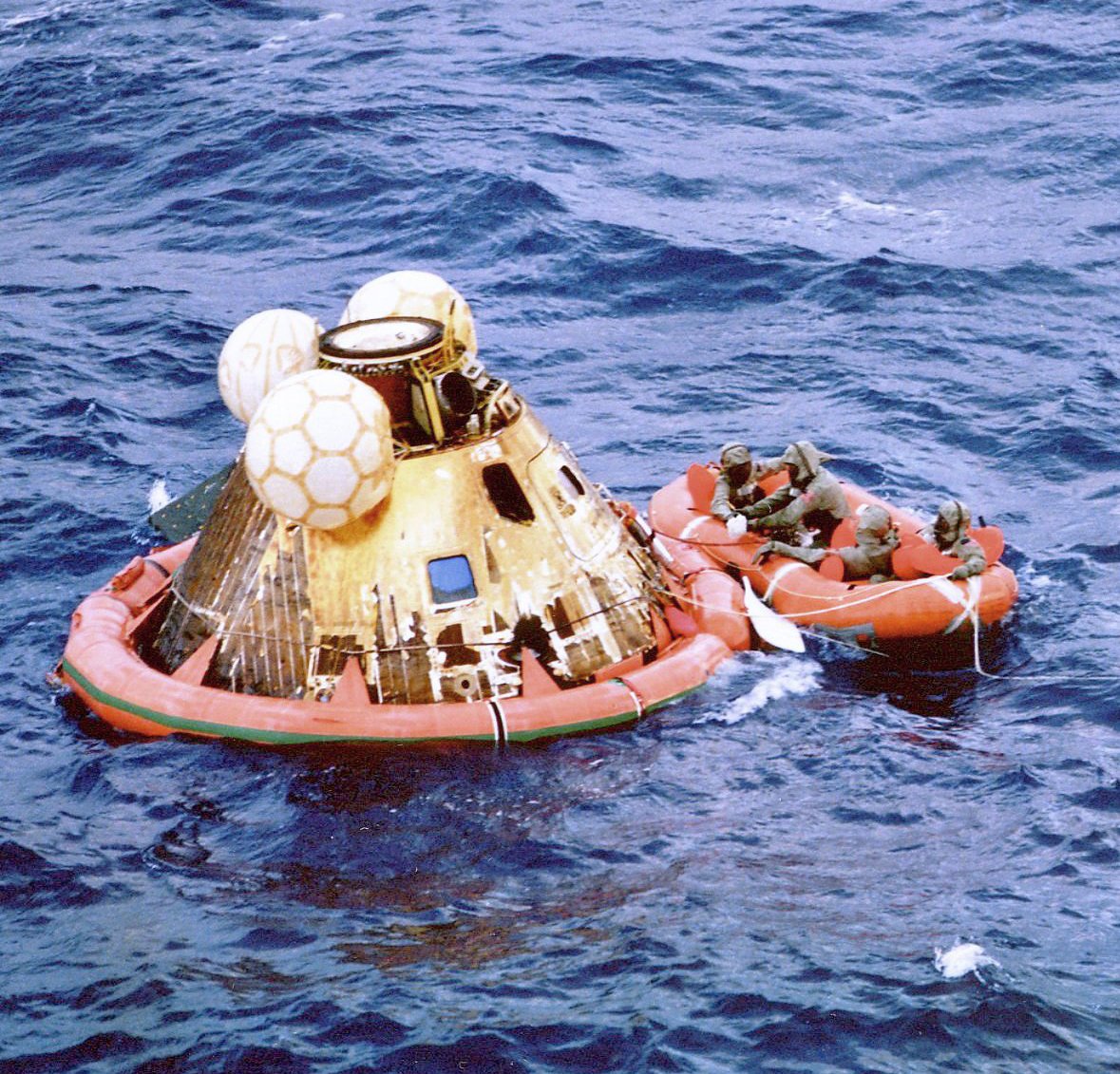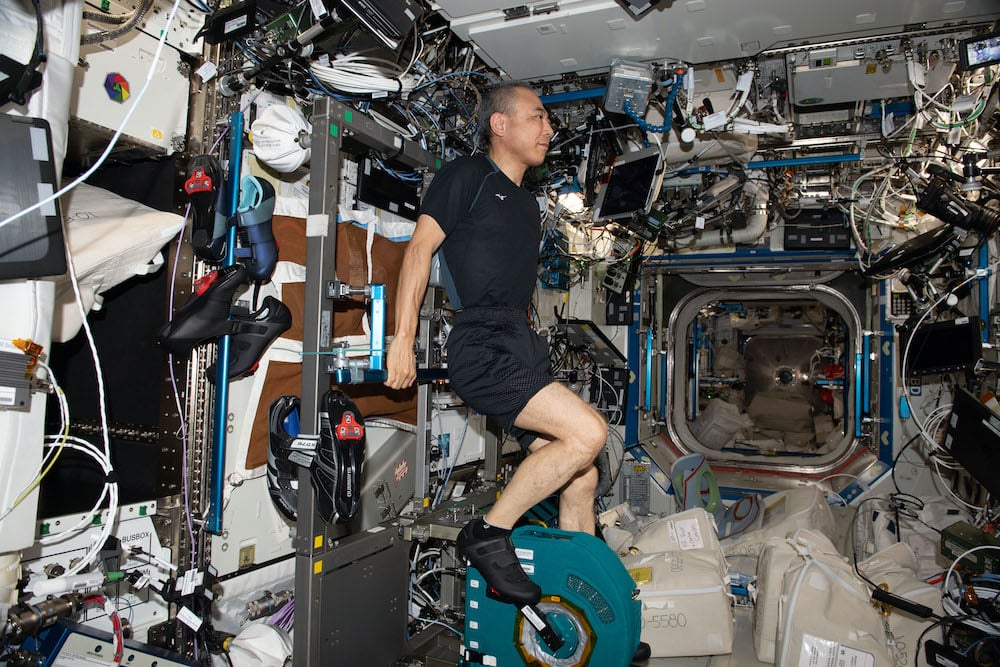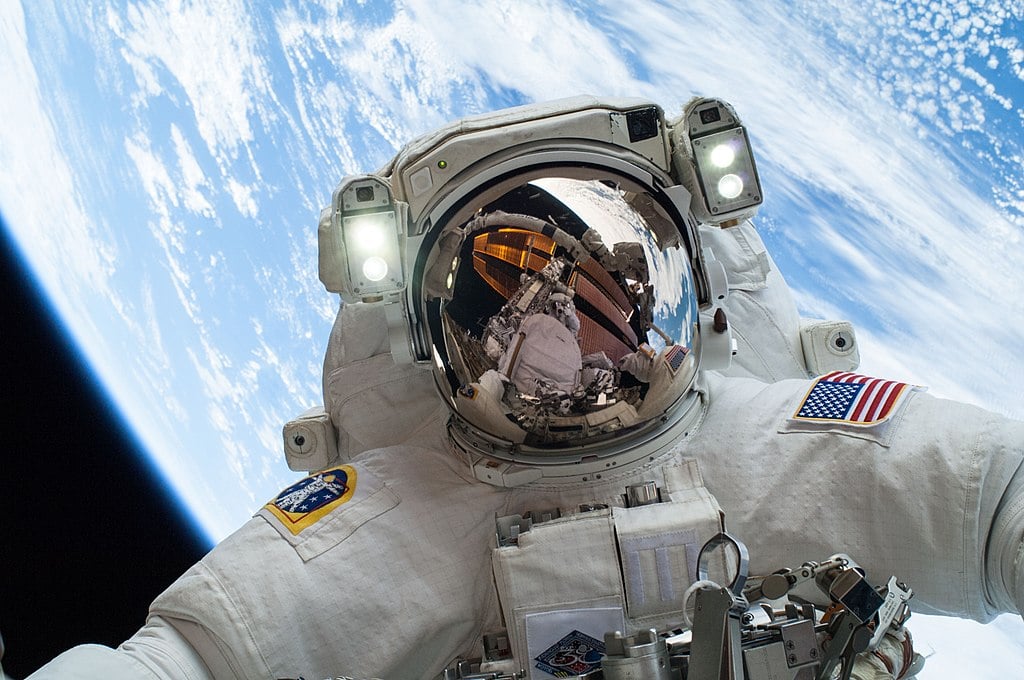Space travel takes quite a toll on the human body. Astronauts experience muscle weakness, bone loss, vision changes, and cardiovascular shifts during their time in microgravity. While scientists understand many of the immediate effects of spaceflight, questions have long been asked about whether these changes cause lasting damage, particularly to the heart and blood vessels.
A new study published in the Journal of Applied Physiology provides encouraging answers to the previous concerns. The researcher team followed 13 NASA astronauts for up to five years after their return from the International Space Station, monitoring their cardiovascular health through detailed medical examinations and ultrasound imaging of key arteries.
Boeing crew flight test astronauts Suni Williams and Butch Wilmore, center, pose with Expedition 71 flight engineers Mike Barratt, left, and Tracy Dyson, both NASA astronauts, in their spacesuits aboard the International Space Station’s Quest airlock on June 24, 2024. (Credit : NASA)
The astronauts, ranging from their late 30s to late 50s when they launched, spent between four months and nearly a year aboard the space station. During their missions, they experienced the typical cardiovascular changes associated with microgravity; reduced blood circulation, decreased physical capacity, and the dizziness that many astronauts feel when first returning to Earth’s gravity.
However, the team found that long term results were remarkably positive. They used ultrasound to examine the astronauts’ carotid arteries in the neck and brachial arteries in the arms, key indicators of cardiovascular health. They found no evidence of the arterial thickening or stiffening that typically signals future heart disease risk.
Blood and urine tests revealed that inflammation and oxidative stress markers, which had elevated during spaceflight, returned to normal within just one week of landing. The astronauts’ blood vessels maintained their ability to dilate properly, another crucial sign of cardiovascular health.
 The crew of Apollo 11 floats on the ocean after their return from the Moon as Navy divers assist in retrieving them (Credit : NASA)
The crew of Apollo 11 floats on the ocean after their return from the Moon as Navy divers assist in retrieving them (Credit : NASA)
Perhaps most importantly, none of the astronauts developed any signs, symptoms, or diagnoses of cardiovascular disease during the five year follow up period. When researchers used standard risk assessment tools to calculate the astronauts’ chances of developing heart disease in the next decade, they found only modest increases that were largely attributable to normal ageing rather than spaceflight exposure.
The study did reveal some minor changes over time. Total cholesterol and glucose levels rose moderately over the seven year observation period, but other diabetes markers remained stable.
These findings are particularly significant because the astronauts maintained active lifestyles after their missions, including those who retired from NASA. This suggests that the protective effects aren’t just due to continued rigorous training but reflect genuine cardiovascular resilience.
 Astronauts on board ISS and during long duration space missions must undertake significant exercise to maintain health. (Credit : NASA)
Astronauts on board ISS and during long duration space missions must undertake significant exercise to maintain health. (Credit : NASA)
The research addresses crucial questions as space agencies plan increasingly ambitious missions, including eventual trips to Mars that could last years rather than months. Understanding how the human body responds to extended spaceflight is essential for ensuring astronaut safety and mission success.
The study concluded that astronauts appear remarkably resilient to the cardiovascular stresses of spaceflight, with their heart and blood vessel systems showing no signs of lasting damage even years after returning to Earth. This represents positive and encouraging news for both current astronauts and the future of human space exploration.
Source : Good news for astronauts: Arteries remain normal years after long-duration spaceflight
